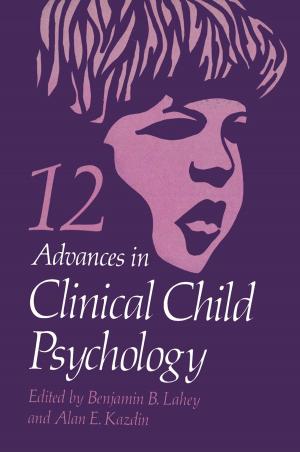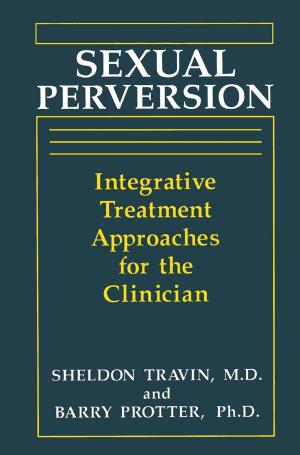Learning Disabilities in Older Adolescents and Adults
Clinical Utility of the Neuropsychological Perspective
Nonfiction, Health & Well Being, Medical, Specialties, Internal Medicine, Neurology, Psychology, Neuropsychology| Author: | Lynda J. Katz, Gerald Goldstein, Sue R. Beers | ISBN: | 9780306475894 |
| Publisher: | Springer US | Publication: | April 11, 2006 |
| Imprint: | Springer | Language: | English |
| Author: | Lynda J. Katz, Gerald Goldstein, Sue R. Beers |
| ISBN: | 9780306475894 |
| Publisher: | Springer US |
| Publication: | April 11, 2006 |
| Imprint: | Springer |
| Language: | English |
Learning disabilities is a subject that is usually associated with school-aged children where the research and intervention strategies are well known. Much less research has been done for assessing and diagnosing older adolescents and adults in this area. This work is an effort to provide a comprehensive review of what we know about certain of these disorders, specifically:
- language-based learning disorders;
- nonverbal learning disorders;
- high-functioning autism;
- attention-deficit/hyperactivity disorder; and
- mathematics disorders
and how they manifest themselves in the later years of development and maturity. A chapter addresses each one of these disorders of learning. Included in each chapter is a discussion of historical perspectives, definitions and diagnostic criteria, incidence and prevalence data, comorbidity studies, pertinent research from all relevant fields of study, reasonable accommodations in academia as well as the workplace, and outcome data. This much-needed review will be of interest to clinicians in neuropsychology, educational psychology, and psychopharmacology.
Learning disabilities is a subject that is usually associated with school-aged children where the research and intervention strategies are well known. Much less research has been done for assessing and diagnosing older adolescents and adults in this area. This work is an effort to provide a comprehensive review of what we know about certain of these disorders, specifically:
- language-based learning disorders;
- nonverbal learning disorders;
- high-functioning autism;
- attention-deficit/hyperactivity disorder; and
- mathematics disorders
and how they manifest themselves in the later years of development and maturity. A chapter addresses each one of these disorders of learning. Included in each chapter is a discussion of historical perspectives, definitions and diagnostic criteria, incidence and prevalence data, comorbidity studies, pertinent research from all relevant fields of study, reasonable accommodations in academia as well as the workplace, and outcome data. This much-needed review will be of interest to clinicians in neuropsychology, educational psychology, and psychopharmacology.















